There is so much to love about Welsh Corgis. If you don’t fall in love with their perky ears and squat rear ends, you will undoubtedly fall in love with their boisterous personality and sharp intelligence.
Many people are attracted to this dog and consider adding the Welsh Corgi to their family.
If you suffer from pet allergies, a Welsh Corgi will likely trigger an allergic reaction.
The Welsh Corgi is not hypoallergenic and sheds more than the average dog due to its thick double coat. Further, Corgis are prone to stress and anxiety, which can accelerate shedding and hair loss.
Luckily, if you already have your heart set on this adorable little dog and you are an allergy sufferer, there are options to help mitigate the impact Corgi hair will have on your allergies.
Routine cleaning, upgraded Hepa filters, and pet-free zones within your house can help reduce your allergy symptoms.
If allergies are still too much even with improved cleaning routines, plenty of other small, truly hypoallergenic dogs may be a better option.
What Causes A Dog To Shed?
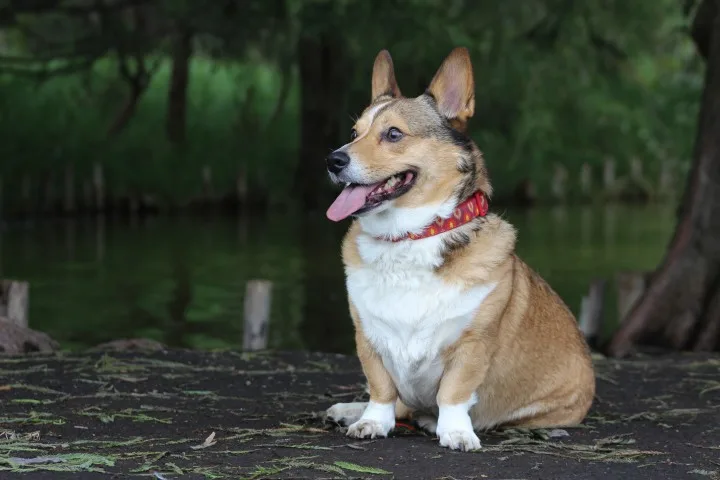 Dogs shed their fur as a completely normal and natural part of having a fur coat. Shedding happens to all dogs, regardless of the breed.
Dogs shed their fur as a completely normal and natural part of having a fur coat. Shedding happens to all dogs, regardless of the breed.
While some dogs are labeled hypoallergenic, this only means that the dog sheds less than the average dog.
Shedding helps to eliminate dead skin cells and dead hair. As new hair and skin cells develop and grow, old dead hairs are pushed out.
While this process is entirely natural, shed hair can pose significant issues for people who suffer from pet allergies.
How Much Do Corgis Shed?
 Despite their small size, Corgis tend to be one of the biggest shedders in the dog kingdom. Much of their shedding comes from their thick double coat.
Despite their small size, Corgis tend to be one of the biggest shedders in the dog kingdom. Much of their shedding comes from their thick double coat.
Corgis were bred to endure changing weather conditions while working on farms. To keep this dog warm and protected, the dog has a coarse outer coat that repels rain and water, along with a soft undercoat that is thick and downy. With double the fur, the Corgi will shed twice as much as an average dog.
Are Certain Times Worse Than Others For Shedding?
Although your Corgi will shed throughout the year, there are two times every year when your dog will shed much worse than usual.
These heavy shedding periods usually coincide with the changing seasons. When the seasons change, and your Corgi sheds, it is often referred to as “blowing” their coat.
Expect a heavy shedding season as winter transitions into spring. During this time, the dog will get rid of the thick winter fur and replace it with lighter, cooler fur appropriate for summer.
Then, as the season transition from summer to winter, expect the Corgi to blow its coat again, preparing for warmer, more insulated fur to protect it during the colder temperatures.
Each time a Corgi blows its coat, the heavy shedding period will last about two weeks.
What Can Cause Abnormal Shedding?
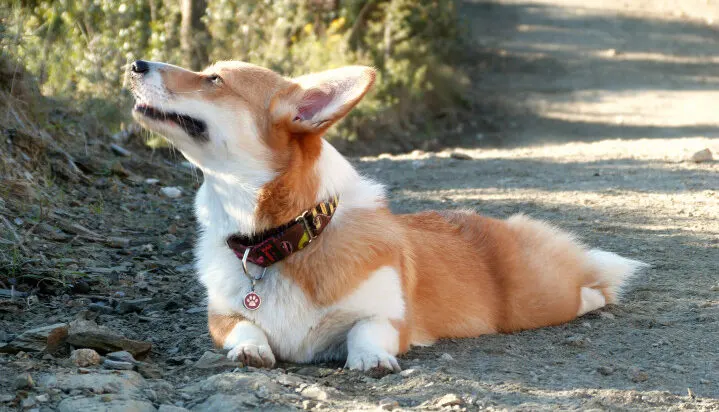 Unfortunately, sometimes external circumstances can make your Corgi shed more than usual which can be problematic for allergy sufferers.
Unfortunately, sometimes external circumstances can make your Corgi shed more than usual which can be problematic for allergy sufferers.
Several conditions can cause abnormal shedding. Some of the most common conditions include:
- Malnutrition – What your dog eats plays a big role in the overall health of the dog’s skin and fur. If your dog is not receiving the right balance of protein and healthy fat, your dog’s skin can become dry, causing hair to fall out more readily. Feeding your dog a healthy diet with high-quality dog food is a great way to maintain a healthy coat and prevent abnormal shedding.
- Stress – All dogs like to keep to a routine, but Corgis, in particular, are creatures of habit. Significant environmental changes can cause the dog tremendous stress and anxiety. Unfortunately, the stress in Corgis can manifest as excessive shedding. If you notice your Corgi is shedding more than usual and out of season for a blown coat, consider any significant changes in your Corgi’s day-to-day life. You may need to change your routine to accommodate your Corgi’s stress level better.
- Allergies – Although Corgis tend to be relatively healthy, they can develop allergies. Corgis can have food allergies or environmental allergies. Usually, pet allergies create hot spots on the skin that are red and irritated. Eventually, these patches will lose fur and contribute to excessive shedding. Your veterinarian will be able to discuss options for prescription allergy medication for your dog.
What Changes Can I Make At Home To Reduce Allergies?
 If you have your heart set on a Corgi but suffer from pet allergies, there are modifications you can make to your home and lifestyle that can help mitigate symptoms.
If you have your heart set on a Corgi but suffer from pet allergies, there are modifications you can make to your home and lifestyle that can help mitigate symptoms.
Some of the best ideas to help reduce the impact pet fur and dander will have on your allergies. To minimize allergies, you can:
- Protect Your Mattress – Try to encase your mattress in a plastic cover. This extra layer will not only prevent fur and dander from penetrating the soft textiles but will also give you a pet-free zone.
- Filters – Most home HVAC systems have filters. Be sure to change these regularly to remove dust and dander from your home environment. If you have more severe allergies, you might want to invest in a Hepa brand filter. These are more selective filters that do a tremendous job at catching dander.
- Hard Surfaces – Soft textiles like carpeting tend to collect and trap pet dander and fur. If possible, consider replacing carpeting with hard surfaces like tile or wood. Hard surfaces are easier to clean and don’t trap allergens.
What Small Dogs Are Ideal For People With Pet Allergies?
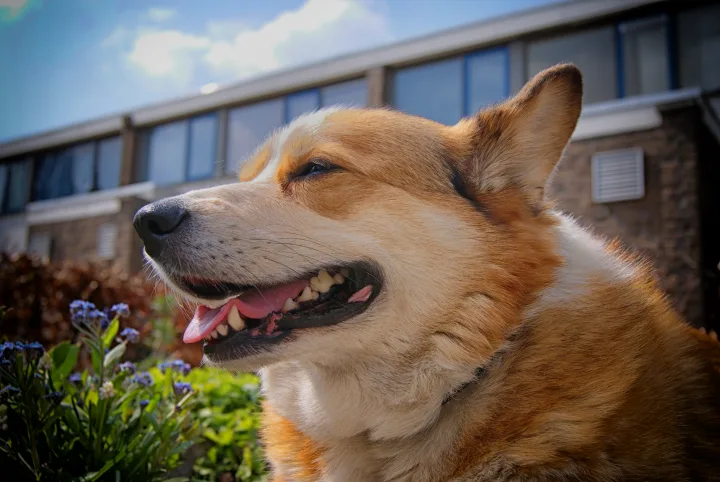 Small dogs are wonderful companions but can be tricky if you suffer from pet allergies. Luckily, several small dogs are considered hypoallergenic.
Small dogs are wonderful companions but can be tricky if you suffer from pet allergies. Luckily, several small dogs are considered hypoallergenic.
These dogs will shed only very lightly, and their small size limits the amount of fur and dander production.
If you suffer from allergies but also want a small dog, consider adding one of the following hypoallergenic dog breeds to your family.
Some great hypoallergenic dogs under 25 pounds include:
- Yorkshire Terrier – Although this little dog may have a reputation for being prim and proper, the Yorkshire Terrier has the complete attitude of a standard Terrier. The little dog has long fur but rarely sheds, making it ideal for allergy sufferers.
- Miniature Schnauzer – With its tight curled fur that only sheds very lightly, the Miniature Schnauzer can make an excellent, small family member. The Schnauzer is brave, active, and highly intelligent. This small dog excels at obedience and agility competitions.
- Shih Tzu – Bred to be a guard dog for Monks in China, the Shih Tzu is fiercely loyal and brave. The small dog has long fur but is still considered hypoallergenic. If you adopt a Shih Tzu, be prepared for intensive grooming and brushing routines.
- Maltese – The small Maltese is a beautiful white dog with soft curly fur. This dog is loyal and perfect for those that live in an urban setting or an apartment.
- Wire Fox Terrier – The Fox Terrier is brave and energetic, having a “big dog” personality packed into a small body. This bold and athletic dog is hypoallergenic and relatively low maintenance. Many describe the Fox Terrier coat as a “wash and wear” style with very few grooming requirements.
- Cairn Terrier – Although not a common dog in the United States, the Cairn Terrier is a loving, lively, and affectionate hypoallergenic breed. With a coat that needs little maintenance and rarely sheds, this dog is excellent for allergy sufferers.
Related Questions
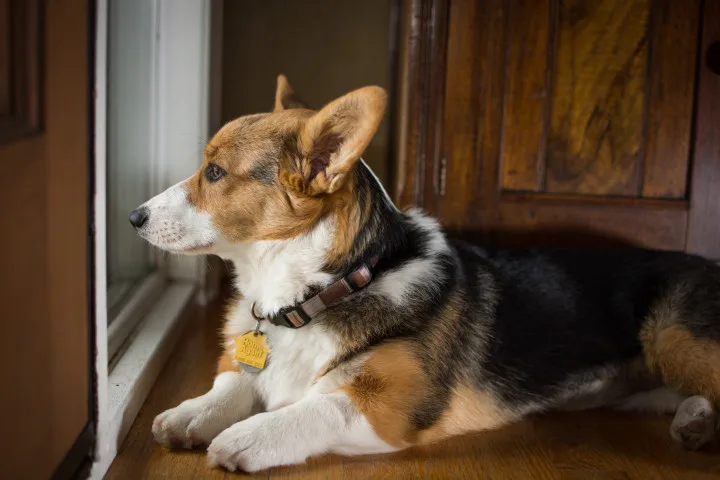 What is the difference between a Pembroke Corgi and a Welsh Corgi?
What is the difference between a Pembroke Corgi and a Welsh Corgi?
The Pembroke Corgi and the Welsh Corgi are incredibly similar, but physically, there are some dramatic differences between the two distinct breeds.
Cardigan Corgis have a long tail that looks like a fluffy foxtail. Comparatively, Pembroke Corgis have short tails cut close to the body.
Usually, Cardigan Corgis are a little larger and thicker. Most Cardigans will weigh up to 38 pounds, while a Pembroke Corgi is usually smaller.
Adult male Pembroke Corgis are generally around 30 pounds. Lastly, Pembrokes have a square rear-end, while Cardigans have a more rounded rear-end.
Do Corgis nip people?
The Corgi was bred to be a herding dog and regularly nips at the legs of sheep and cattle to get them to move in one direction or the other.
Often, the Corgi will look to its family as part of its herd. It is not uncommon to see Corgis nipping at children’s ankles or heels to get them to move from one area of the house to another.
Nipping is not generally a sign of aggression. Although this is an endearing trait, it is possible to stop this unwanted behavior in your dog with the proper training.
Be sure to start training at a young age to teach your dog what behaviors are expected in your household.
Our team is composed of pet care professionals, veterinarians, and pet owners. To date, we’ve conducted thousands of hours of research to publish the most accurate pet information.
Most of the writers on our site are vets with 10+ years of clinical experience, ranging from small practice, to equine practice, academia, and surgery. Our goal is to help every pet owner get the information they seek about their dear companions.

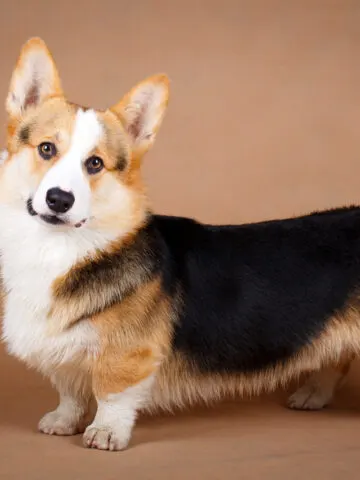

Leave a comment
You must be logged in to post a comment.